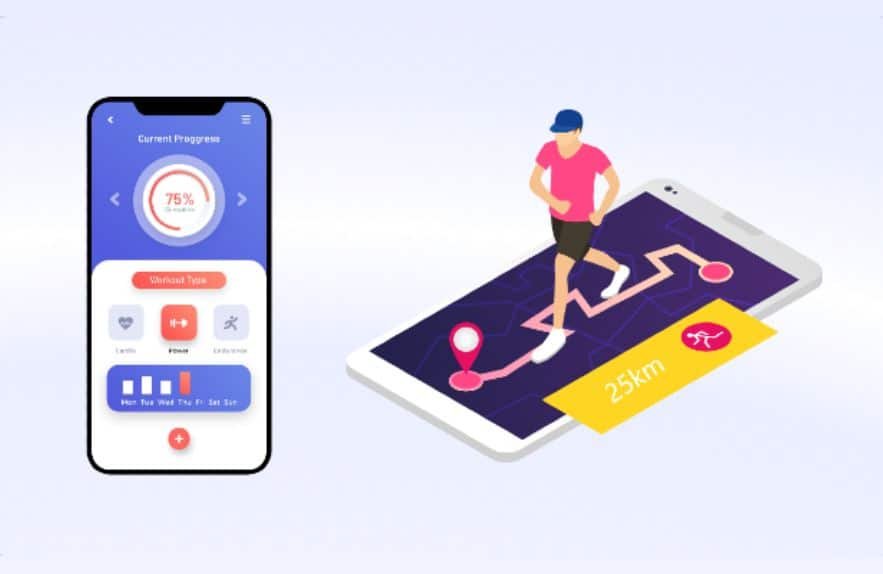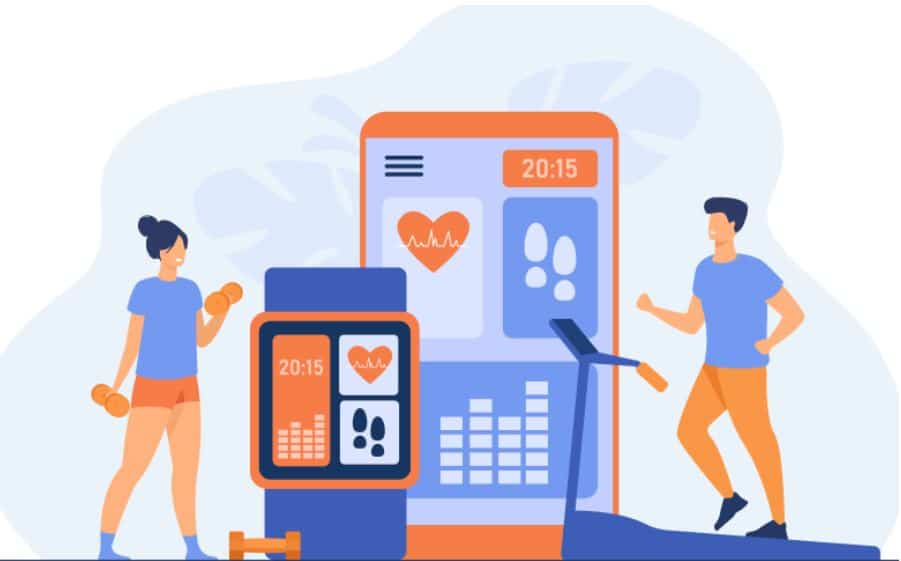Apps
Fitness App Development: Features and Process

Health and fitness have always been major concerns for everyone. However, remaining healthy and trendy used to be more challenging owing to the difficulties of finding fitness trainers with whom you would love exercising. Fortunately, thanks to fitness app developers, the fitness business has undergone a complete digital transformation makeover since the advent of the digital age. Since then, the growth of health and fitness apps has characterized a diversity of techniques, from establishing healthy meals to weight reduction workouts with a single swipe on their cellphones.
Features of a health fitness app
Defining the features you need to provide is a critical step in the creation of a white label fitness app. The following are the most critical functions you may need to create:
- Registration/login. Users sign in here to begin engaging with your app.
- Personal information. This area gathers vital information about the user. For example, if your application provides individualized exercises or weight reduction chances, you must question users about their present physical condition and objectives at the start of the trip in order to provide unique recommendations.
- Blog. Users who use health and fitness apps are probably concerned about their general health and lifestyle. A blog is a terrific way to help your users, grow your brand, and deliver necessary information while encouraging loyalty.
- Connection to a wearable gadget. Fitness, yoga and weight reduction apps work best when combined with a wearable device, allowing the user to measure the number of calories burned and the time spent training and exercising.
- Sharing on social media. Sharing accomplishments with friends is beneficial for support and inspiration, but it is also beneficial for recruiting new users to your app.
- Integration of an app. Connecting your app to other applications may make sense.

More fitness app features
- Geolocation is used to plan routes, monitor mileage and pace, connect users to other runners, show nearby healthy eateries and gyms, and discover personal trainers.
- Users may share their accomplishments through social networks and establish a blog about their experiences of successful weight reduction or muscle building.
- Using nutrition or grocery APIs, create a shopping list to plan weekly grocery lists.
- Filters enable users to search for information based on factors such as complexity, time, body part, exercise type, trainers, keywords, ingredients, calories, or recipe cost.
- Coaching material will include a range of instructive information, such as quick alerts, articles, video lessons, and recommendations from certified trainers.
- After all, you must protect user data.
How to Create a Fitness App
After determining a fitness app’s feature set, the following issue is how to design a fitness app. Here are six simple steps to developing a fitness app.
-
Select a Monetization Model
How will your app generate revenue? That is the question you should be asking. Consider the following monetization models:
- The freemium model.
- Subscription-based applications
- Advertisement inside the app.
- Purchases made inside the app.
-
Recruit A Product Team
Developing a fitness app entails numerous steps, including technology development, product development, business management, design, and marketing promotion. Delegating may be difficult for certain people. But attempting to achieve everything at once is just too dangerous. And, particularly in the case of startup development, you cannot take chances.
As a result, you can always subcontract product development to an experienced team. A product team may assist you at every level of the fitness app development process.
-
Conduct an investigation
It is critical to do discovery while working with a new product. The product team does user research, examines the market, and solves an issue during the discovery stage.
-
Establish Your Requirements
You know where to go after the Discovery stage. However, even if you know what your fitness app will be about, you must still study how it will apply the concept. To comprehend this, you must first establish the functional and non-functional needs of your product.
-
Create an MVP
The MVP is the product’s subsequent, more polished, and enhanced version. Unlike the prototype, this is a fully operational digital solution. However, it just covers the most fundamental functions.
-
Scale and Upkeep
Scaling your app is another stage in fitness app development. App scalability implies that the app’s data consistency should be sufficient to manage an increasing number of users.
You can find more about creating fitness apps here: https://trembit.com/
-

 Celebrity4 weeks ago
Celebrity4 weeks agoIs YNW Melly Out Of Jail? What Is The YNW Melly Release Date, Career, Early Life, And More
-

 Sports4 weeks ago
Sports4 weeks agoMore Than Just a Game: How College Sports Can Shape Your Future
-

 Tech3 weeks ago
Tech3 weeks agoAI Software: Transforming the Future of Technology
-

 Tech3 weeks ago
Tech3 weeks agoAll About Com. Dti. Folder Launcher: Features, Benefits, Tips, And More













